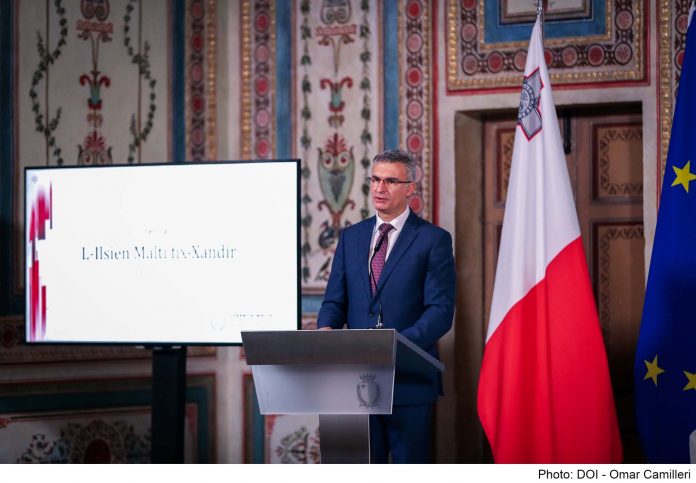
“The government is committed to ensure that the Maltese language continues to develop, evolve and move forward.”
This was stated by Minister within the Office of the Prime Minister Carmelo Abela during the opening of a conference on the Maltese language in broadcasting in the context of the International Mother Language Day as declared by the United Nations which for the past years has been commemorated every 21st February.
A number of topics were discussed during the conference including the current state of the use of the Maltese language in broadcasting and what can be done to improve the quality of Maltese in broadcasting, the use of sign language in broadcasting, the use of sports terminology during sports news and commentaries as well as the Maltese dialects in the broadcasting.
In his address, Minister Abela stated that the Maltese language is not only the primary mark of the Maltese identity but also passes on the knowledge and thoughts of our previous generations. He referred to studies made by experts which estimate that every fourteen days one language dies and said that if this happens to the Maltese language, we will lose our country’s soul and a communication tool that no technology can replace.
In his speech he listed some of the challenges for the Maltese language today, including access to correct Maltese on social media, correct spelling in the media and online media as well as the factor of broadcasters who start a sentence in Maltese and end it in English.
To address these challenges, Minister Abela announced that work is being done on a draft code on the use of the Maltese language for both television and radio broadcasters, as well as online. He explained that following the approval of this draft code, the manner in which Maltese is spoken in the audiovisual media will continue to be respected.
The Minister explained that this draft code is being worked on by the Broadcasting Authority and the National Council of the Maltese Language and will apply to all audiovisual means who use the Maltese language.
“We must preserve what is ours and take care of it. Language gives us an identity which we must cherish and protect. If we neglect our national language which we were born with and inherited from our previous generations, we will not be able to pass it on to future generations,” concluded Minister Abela.









